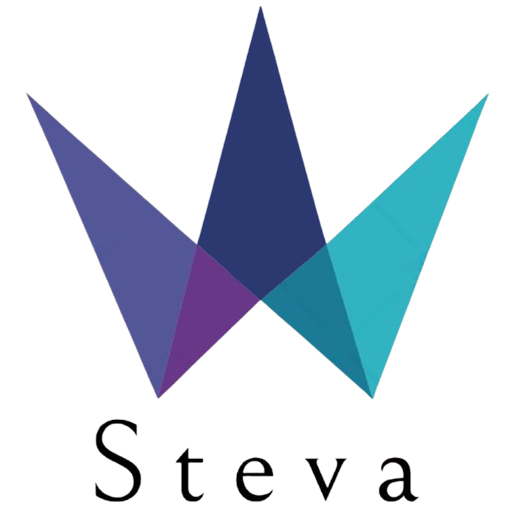Oh No, You Have to Talk About Yourself (Again?)
You know that awkward moment when someone asks, “So, what do you do?” and suddenly your brain decides to take a vacation? You either downplay your achievements like they don’t matter or you go full-on TED Talk mode, and the other person slowly backs away. Well, my friend, that’s where self-promotion strategies come in.
Look, I get it. Talking about yourself feels weird. But guess what? If you don’t, someone else will. And they probably won’t do it right. So, let’s dive into the world of self-promotion.
Why Talking About Yourself (The Right Way) is The Key to Everything

- 83% of hiring managers say that a strong personal brand influences their hiring decisions. (Source: LinkedIn)
- 92% of people trust recommendations from individuals over brands. That includes you. (Source: Nielsen)
- People with an active online presence are 40% more likely to land opportunities. (Source: CareerBuilder)
So, if you’re still wondering why self-promotion is important, let me put it simply: because people need to know you exist.
The Secret Sauce: Self-Promotion Strategies That Work (Without Making You Cringe)

1. Be So Good They Can’t Ignore You (Make Them Regret Overlooking You)
Imagine this. A man plays the violin in a subway. Thousands walk past. No one stops. Just another street performer, right? Wrong. That man is Joshua Bell, one of the greatest violinists alive. A few nights earlier, people paid $100+ per ticket to hear him. In the subway? Just a few tossed coins.
Harvard Business Review found that the top 1% in any field earn 10 to 20 times more than the average. Why? Because once you’re undeniably good, self-promotion becomes automatic.
- Elon Musk never applied for a job. He builds rockets, people come to him.
- Beyoncé doesn’t audition. She breathes, stadiums sell out.
- Jeff Bezos was mocked for selling books online. Now, he practically owns the internet.
- The world doesn’t owe you attention. You have to earn it by being so good they have no choice.
If people aren’t noticing you yet, maybe you’re just not undeniable enough. Fix that.
2. Use Social Media, But Not Like a Robot
Nobody likes that guy who only shows up to scream, “BUY MY STUFF!” and then disappears. That’s not marketing, that’s spam with a profile picture.

Social media is about conversations, not just promotions. If you act like a billboard, people will scroll past you faster than bad news.
- Reply to comments. Nobody likes being ignored, engaging with your audience.
- Share more than just your work. Behind-the-scenes, funny stories, personal struggles, people love realness.
- Don’t sound like a corporate press release. Use memes, humor, and casual language.
- Give more than you ask. Promote others, share useful content, and actually contribute to discussions.
If you act like a human, people will treat you like one. If you act like an ad, well… enjoy screaming into the void.
3. Tell Stories, Not Just Achievements
Nobody cares that you got promoted. But they might care how you did it, what you struggled with, and what they can learn from you. People don’t connect with titles, they connect with stories.
- Instead of “I landed a big client,” say “I got rejected 15 times before finally closing this deal. Here’s what I learned…”
- Instead of “I won an award,” say “Three years ago, I almost quit. Today, I’m holding this trophy. Here’s why persistence matters…”
- Instead of “I launched a business,” say “I started with $50, a laptop, and no clue what I was doing. Here’s what worked…”
Achievements impress people. Stories make them remember you.
4. Collaborate With People Smarter Than You (Yes, Smarter, Deal With It)
If you’re always the smartest person in the room, you’re in the wrong damn room. Seriously. Staying in your comfort zone is the fastest way to stay irrelevant.

Want to be known? Get in rooms where you feel like an imposter. Surround yourself with people who make you feel dumb, because that’s how you grow. And guess what? Their credibility starts rubbing off on you.
- Hop on a podcast. Their audience = your audience.
- Partner with someone bigger than you. A single collab can do more than a year of self-promotion.
- Engage with industry leaders, loudly. Not with cringe “Great post, sir” comments, but by adding actual value.
- Go to events where you feel out of place. Awkward? Yes. Worth it? Also yes.
If you only hang with people at your level, you’ll stay at your level. So, what’s it gonna be?
5. Be The Guy Who Shares Cool Stuff (Not Just Your Own BS)
Nobody likes a person who only talks about themselves. You know the type, every post is “Look at me! Look at what I did! Look how awesome I am!” Exhausting, right?
Instead, be the person who brings value. Share things people actually care about. Because when you make others smarter, more informed, or even just entertained, they start paying attention to you.
- Found an insane stat? Share it. (Like how 90% of startups fail, but the other 10% make millions.)
- Read something mind-blowing? Talk about it. People love fresh insights.
- Spot a trend before it blows up? Call it out. Boom, instant credibility.
- Hyped about someone else’s work? Hype them up. Generosity makes you memorable.
When you’re the guy who always shares gold, people start following you, not because they have to, but because they want to.
6. Get Featured (Even If You’re a Nobody Right Now)
You don’t need to be famous to get noticed, you just need to show up where people are already paying attention. The more places you appear, the more legit you seem. Visibility = credibility.

- Guest posts? Write them. Even small blogs can get big eyes on you.
- Podcast interviews? Say yes. No one cares if you’re not a celebrity, just have something interesting to say.
- Speaking at events? Do it. Even if it’s a small panel, people will start associating you with expertise.
- Press features? Pitch yourself. A single article in the right place can boost your credibility overnight.
You don’t need a massive following, you just need to be seen in the right places. Because the more people see you, the more they assume you matter.
7. Talk About Failures (Because Nobody Likes a Perfect Robot)
People love a good comeback story. You know what they don’t love? A person who acts like they’ve never screwed up. That’s boring. Nobody relates to perfection.
- Lost a big client? Talk about what you learned.
- Started a business that flopped? That’s a lesson, not a shameful secret.
- Made a dumb career move? Own it, others have been there too.
- Embarrassed yourself publicly? Even better. Nothing builds trust like a little self-roasting.
When you share your failures, people see themselves in you. And when they see themselves in you, they start paying attention.
8. Your Bio Shouldn’t Read Like an Obituary
If your bio sounds like a boring LinkedIn resume from 2007, fix it. Now. Nobody gets excited reading “Results-driven professional with a proven track record in leveraging synergies.” What the hell does that even mean?

Instead, make it sound like a real person wrote it.
- “I help brands grow through storytelling.” Clear. Engaging. Not painful to read.
- “I turn boring businesses into must-follow brands.” Now that’s interesting.
- “Once got fired, started a business, and now help others avoid my mistakes.” Feels human, right?
- “Helping people sell without sounding like a sleazy car salesman.” Boom, relatable.
If your bio doesn’t make people instantly get who you are and why they should care, rewrite it. Because if you sound like a corporate robot, people will treat you like one, and ignore you.
9. Brag, But in a Cool Way
Nobody likes a “LOOK AT ME, I’M AMAZING” type of brag. But you know what people do like? A flex disguised as a story. Instead of shoving your achievements in people’s faces, make them interesting.
- Instead of: “I’m great at sales.”
- Say: “Last month, I closed the biggest deal in company history. Here’s how…”
- Instead of: “I’m an expert in marketing.”
- Say: “I once took a brand from 0 to 100K followers in 6 months, without spending a dime on ads.”
- Instead of: “I’m a top-performing coach.”
- Say: “One of my clients doubled their income in 3 months just by fixing ONE mistake.”
Bragging isn’t bad. Boring bragging is. Make it interesting, make it a story, and people will actually listen.
10. Keep Showing Up
One viral post won’t make you famous. One podcast interview won’t make you a thought leader. One win doesn’t mean anything if you disappear afterward.

- 90% of people give up before they get noticed. Don’t be one of them.
- The most followed, trusted, and successful people? They didn’t post once and vanished. They showed up again. And again. And again.
- The key isn’t just quality, it’s consistency. Even if nobody’s watching, keep going.
- Every overnight success? Years in the making.
If you keep showing up, people will eventually start paying attention. And when they do? You’ll already be miles ahead of everyone who quit.
Personal Branding vs. Self-Promotion: What’s The Difference?
People mix these up all the time. But they’re not the same thing.
1. Personal Branding = Who You Are
It’s your story, your values, your vibe. It’s what people think of when they hear your name. Are you a no-BS entrepreneur? The creative genius? The funny, relatable expert? That’s your brand.
2. Self-Promotion = How You Talk About It
It’s how you tell the world what you do, without sounding like a desperate infomercial. You don’t just scream “I’M AWESOME” into the void. You share insights, wins, and lessons in a way that actually helps people.
Think of it like this:
- Personal Branding = The foundation. Who you are, what you stand for.
- Self-Promotion = The tools. The way you make sure people know about you.
One without the other? Useless. A strong brand with no promotion is invisible. Relentless promotion with no brand? That’s just noise.
Do You Really Need to Promote Yourself to Succeed?

Short answer? Yes.
Long answer? Still yes, but let me explain.
You could be the most talented person in your field, but if nobody knows about you, it doesn’t matter. The world isn’t a talent show where the best automatically win. It’s a visibility game.
- 85% of jobs are filled through networking, not applications. (HubSpot)
- People buy from those they trust, not just those who are good.
- You don’t exist in people’s minds until you put yourself there.
If you’re thinking, “But I don’t want to sound braggy!”, forget that. Self-promotion isn’t about arrogance. It’s about making sure the right people see what you bring to the table.
Because if you don’t talk about your skills, someone way less talented (but louder) will get the opportunities meant for you.
Self-Promotion Examples That Actually Work
- Elon Musk: Tweets like a maniac. Somehow, it works.
- Oprah Winfrey: Shares stories. Build connections.
- Gary Vee: Talks non-stop. People listen.
- YouTube Creators: They don’t just make videos; they promote them.
Is Self-Promotion Bad? (Spoiler: Nope, But There’s a Wrong Way to Do It)
Bad self-promotion is like that guy who won’t stop talking about himself at a party. Annoying, right?
Good self-promotion? It’s about sharing, helping, and making others care about what you do.
How Many Optional Self-Promotion Strategies Are There?
There are endless ways to promote yourself, but let’s not overcomplicate things. If you’re wondering, “How many optional self-promotion strategies are there?”, the answer is as many as you’re willing to try. But let’s keep it simple. Here are five you can start today.
1. Start a Blog: Share Insights and Expertise
You don’t need to be a pro writer. Just start sharing useful content. People Google problems every second, if your blog helps, they’ll find you. And once people start reading your stuff? You become an authority.
2. Be Active on LinkedIn: Post, Comment, Engage
LinkedIn isn’t just for job hunting. It’s a goldmine for networking. Post valuable insights, comment with actual thoughts (not just “Great post!”), and engage in discussions. You’ll be shocked at how fast people start noticing you.
3. Network in Real Life: Yes, People Still Do This
Want to stand out? Go where most people aren’t, face-to-face events. Meetups, conferences, even casual coffee chats. A single in-person connection can open doors that a hundred emails won’t.
4. Host Webinars: Teach People Something Useful
People love free knowledge. Webinars position you as an expert, help you build an audience, and, if done right, bring in actual paying clients. No need for fancy production, just valuable content.
5. Use Video Content: Because People Love Watching Over Reading
YouTube, Instagram Reels, TikTok, video content gets insane reach. People feel like they know you just by watching. And when people feel like they know you? They trust you.
Self-promotion isn’t about doing everything, it’s about picking what works for you and doing it consistently.
3 Things You Should Know About Self-Promotion
1. People Are Busy, So Keep It Short
No one has time for your life story. Get to the point.
2. Your Reputation is Built Over Time
One post won’t make you famous. Consistency wins.
3. Not Everyone Will Like You (And That’s Okay)
Some people will think you’re bragging. Some won’t care. That’s life.
Final Thoughts: Mastering Self-Promotion Without Being Annoying
If you’re still wondering, is self-promotion bad?, the answer is no, but doing it wrong is. The right self-promotion strategies make people see your value without feeling like they’re being sold to. Look at successful self-promotion examples like Elon Musk, Oprah, or top YouTube creators, they promote themselves by sharing insights, stories, and engaging content. The key? Be consistent, provide value, and make people care. If you don’t talk about your skills, someone less qualified will take the spotlight. Self-promotion isn’t bragging, it’s making sure the right people know why you matter. So, show up, share, and own your space.





